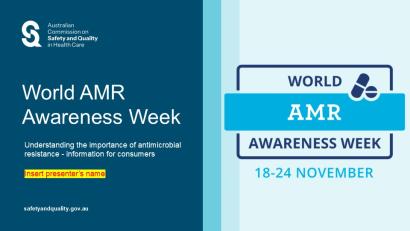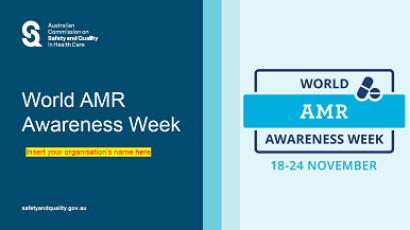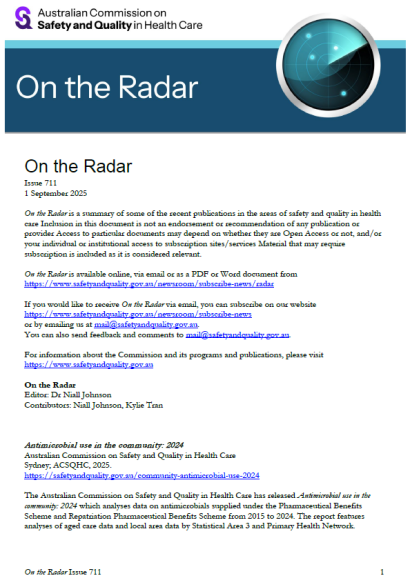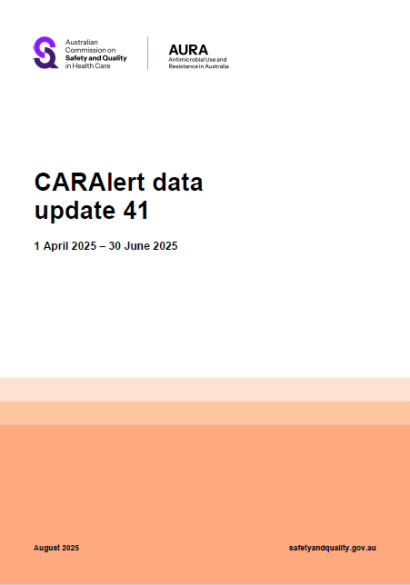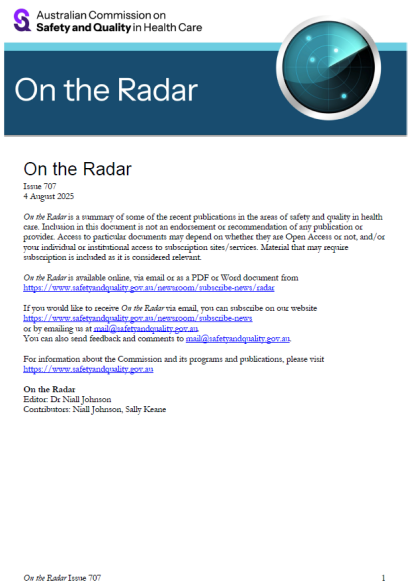The Commission is committed to supporting healthcare services to provide culturally safe and equitable healthcare to all Australians. See our recommendations on culturally safe care from the Colonoscopy Clinical Care Standard.
Other resources and useful links for clinicians, healthcare services and consumers relevant to the Colonoscopy Clinical Care Standard.
The Commission has developed the Medication Management at Transitions of Care Stewardship Framework as part of its commitment to reducing risks of harm associated with transitions of care.
The Colonoscopy Clinical Care Standard (2025) is endorsed by several key professional and consumer organisations.
Measurement and feedback are key to quality improvement. Data can be used to identify areas where services are doing well and areas where improvement is required.
This page answers common questions about Practice Reflections, including their purpose, process and benefits. It provides practical guidance for clinicians and teams on using reflections to support continuous improvement, strengthen patient safety and embed learning in everyday practice.
To support their quality improvement activities, general practitioners (GPs) across Australia are receiving Practice Reflections reports. These reports contain their Medicare Benefits Schedule (MBS) spirometry data, along with aggregate data from GPs in similar remoteness areas for comparison purposes.
Practice Reflections are personalised reports that provide confidential information for individual Australian General Practitioners (GPs) on their Pharmaceutical Benefits Scheme (PBS) prescribing or Medicare Benefits Schedule (MBS tests) in specific clinical areas.
The Commission recognises the importance of delivering sustainable healthcare and reducing harm from environmental impacts.
Resources for consumers, clinicians, and healthcare services to support implementation of the Colonoscopy Clinical Care Standard, and about assessment to the NSQHS resources.
Information about the safe and responsible use of Artificial Intelligence (AI) in healthcare.

